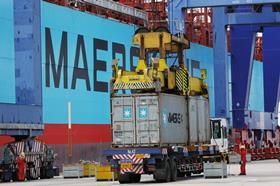
Fruit, veg and flowers will all go up in price when the UK leaves the EU, regardless of what type of trade deal is reached, finance analysts have warned.
Imported food is likely to rise in price by eight per cent by the end of Britain’s two-year EU withdrawal, a report by Rabobank has calculated, with extra border controls making it more expensive and time-consuming to bring in food from overseas.
Since the UK is highly dependant on a wide range of fresh produce imports, the report’s author Harry Smit warned that prices are likely to increase whatever trade deal Britain strikes with the EU – tariff-free or otherwise.
“UK consumers should brace themselves for some price rises – perhaps by as much as eight per cent – on those products for which Britain is almost solely reliant on the EU,” Smit wrote in Future Food Security in the UK: the Impact of the Brexit on Food and Agribusiness in Europeand Beyond.
“The potential impact of Brexit on food and agriculture companies in and outside of the United Kingdom is huge. The UK is only 60 percent self-sufficient in terms of food, and is therefore a major net importer of food and agriculture products.”
In 2016 the UK imported £47.5 billion worth of food and agriculture products, of which 71 per cent were from EU countries. The most valuable imports were Dutch and Spanish fruit, vegetables and flowers.
According to the report, the Netherlands exports almost £1.9 million worth of fresh fruit, vegetables and flowers to the UK, and although it is unclear what British trade agreements will look like after Brexit, Smit predicted that “the cost of exports will undoubtedly increase”.
These predictions are partly based on the estimation that the pound will continue to fall in value, with analysts of the report saying sterling is likely to fall by a further five per cent in the next year. This will put added pressure on prices as margins are squeezed.
Prices could also be driven up by labour shortages and a potential rise in domestic production, making sufficient labour more difficult to source.
Smit believes fresh products, for which the UK has no alternative sources, “will, for the most part, most likely continue to be imported in the same manner”.
Meanwhile, food manufacturers could benefit from producers paying for imported raw materials to be processed in the UK rather than buying in finished items from abroad.



